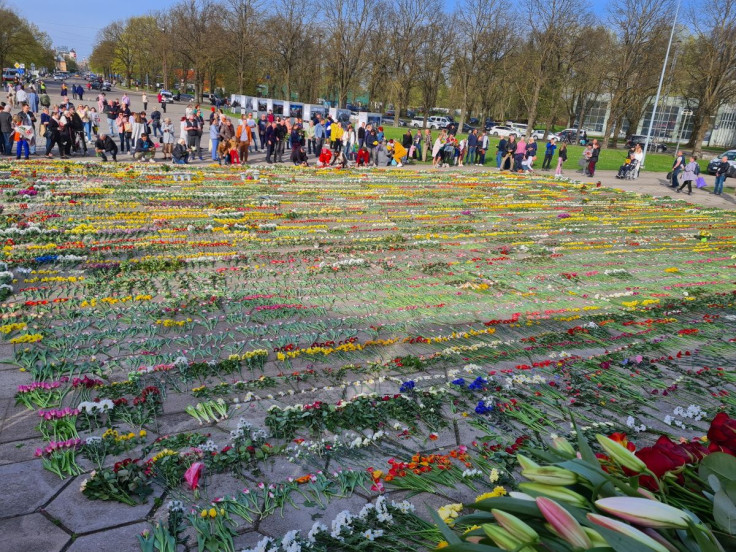Latvian Minister Resigns After Commemoration Of Soviet Wartime Victory

Latvia's interior minister resigned on Monday under pressure from the ruling coalition which criticized the police for failing to ban the country's Russian speakers from commemorating earlier this month the Soviet Union's victory in World War Two.
Latvia and its neighbours, Estonia and Lithuania, say Moscow used its victory over Nazi Germany to forcefully incorporate the Baltic region into the Soviet Union.
Latvian police on May 10 used force to disperse hundreds of mostly Russian speakers at an obelisk in the capital Riga, for disobeying a recent law prohibiting gatherings at monuments glorifying the Soviet victory.
The minister, Marija Golubeva, told reporters she no longer has the support of the prime minister after a coalition partner threatened to quit in protest of the decision by police to allow the mostly peaceful gatherings at the obelisk on May 9, when Russia commemorates the World War Two victory, and on May 10.
"What does it say about Latvian resilience if an insignificant gathering of a few hundred people standing for two hours can shake the government?" Golubeva said in defiance.
Prime Minister Krisjanis Karins, who did not comment on Golubeva's resignation, earlier said the gatherings disrespected Latvia's statehood, and the memory of the victims of the Russian invasion of Ukraine, the BNS news wire reported.
The Latvian parliament on March 31 banned public events within 200 meters (656 feet) of Soviet war memorials, in a move to disrupt May 9 celebrations at the Riga obelisk, which traditionally attracted tens of thousands of mostly Russian speakers each year to events attended by Russia's ambassador but shunned by Latvia's top leadership.
In the Baltic republic of 1.9 million, 24.5% are ethnic Russians, according to official figures. In Riga, the number is as high as 36%.
In defiance, thousands of Russian speakers showed up throughout May 9 to lay flowers at the obelisk under a heavy police presence.
Many returned on May 10 to restock the flowers, after a widely circulated video showed municipal workers using a tractor to dump them into the garbage.
Russian pro-war symbols such as the letter "Z," banned in Latvia, were worn by some attendees on May 10, and Russian military songs were played from parked vehicles nearby, before police moved in, Latvian news outlet Delfi reported.
Riga's city council on Friday voted to remove the obelisk, in a move supported by the parliament and prime minister. No timeline for the removal was set.
© Copyright Thomson Reuters {{Year}}. All rights reserved.





















